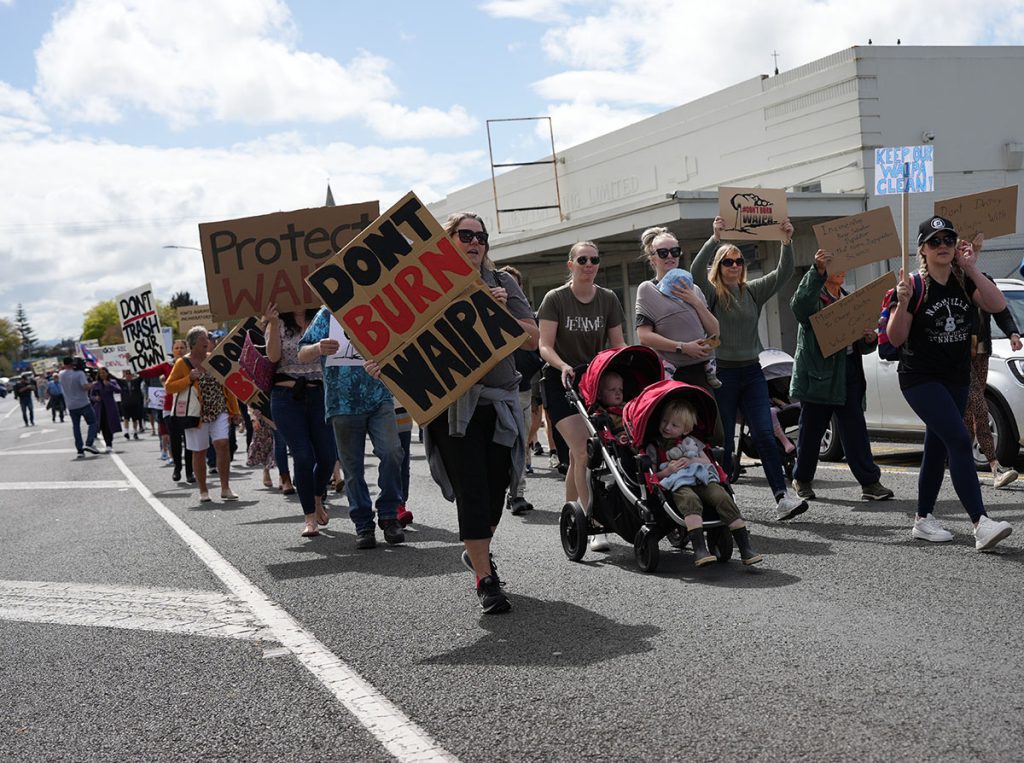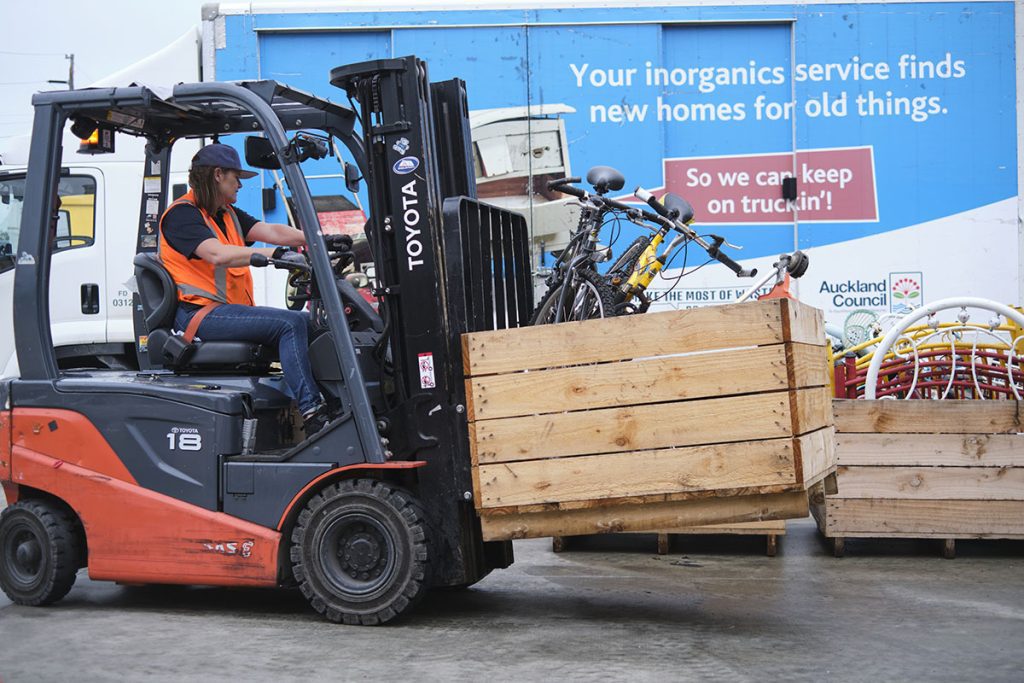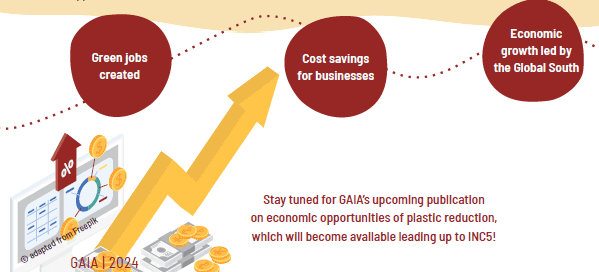Interview with Sue Coutts by Dan Abril

In pursuing a greener and more sustainable future, Zero Waste Network Aotearoa (ZWNA) has emerged as a pioneering force. They opened the first community recycling center in Kaitaia in 1989, then in the late 1990s ZWNA pioneers Warren Snow and Gerry Gillespie built the Zero Waste movement in New Zealand. Since then the network of Zero Waste hubs has grown steadily over the last 20 years.
Today, there are 1400 employees in member organizations across the network and with its Zero Waste roadmap, ZWNA is tirelessly advocating for practical projects across the country. We recently had a chat with Sue Coutts, environment advocate and ZWNA’s External Affairs Officer, who shared insights into the organization’s mission and ongoing initiatives.
What are ZWNA’s top priorities?
We wear two hats. One is a Zero Waste promotion hat and the other hat is for assisting the local scale businesses that make up the network. We also work closely with communities and provide support through social enterprises. It’s like building a network that operates as a collaborative club where everyone helps one another. This mutual support is essential because we can collectively achieve our goals by supporting each other’s causes.
As a network, our services encompass behavior change repair, composting, recycling, and reuse. Our approach is not about preaching or imposing a Zero Waste philosophy; instead, it’s about encouraging a domino effect and sharing knowledge. Additionally, our sister organization, Para Kore, is an organization focused on Indigenous Peoples (IPs) and they provide opportunities for IPs across the nation to promote Zero Waste and Māori culture. Taking these steps becomes more manageable when we collectively maximize our skill sets to make a meaningful difference in our communities.

What are the main ongoing campaigns?
Over the past two decades, we’ve diligently advocated for implementing a Container Return Scheme and put in a significant amount of effort to persuade the public. Our mission is to provide the necessary information for individuals to make well-informed decisions. This same approach guides our interactions with government officials.
Currently, we do not have waste-to-energy (WtE) facilities in the country but there are ongoing proposals for incinerators. Out of the three proposals, the pyrolysis project in Fielding has been withdrawn after undergoing an extensive evaluation process. Whether waste is buried or burned, we believe it still contributes to the same underlying issue. Our commitment lies in assisting both government and local communities to understand the implications of these proposals. With the coming general elections, we are hoping that the elected government will be more receptive to our cause.
What are your biggest accomplishments/achievements?
For nearly three decades, we’ve been advocating for sustainability. In those early days, our efforts were often met with skepticism, but today, it’s heartening to see that nearly half the country is fully committed to sustainable practices. One example of this growing support is the Container Return Scheme, with an astounding 89% of the population backing its implementation.
Our journey has been a lengthy process that involves a great deal of groundwork. We take pride in the fact that over the past 30 years, New Zealand has witnessed a significant shift towards a Zero Waste lifestyle, with a growing number of people opting to buy second-hand items and supporting Zero Waste stores.
What challenges are you facing? How is your work impacted by the COVID crisis?
While the COVID crisis did not have a massive impact and is not a major factor in our current situation, it did bring about some concerns. At the height of the pandemic, driven by fear, we witnessed a surge in single-use masks and containers.
Today, our challenges are more towards the implementation of effective product stewardship like the Container Return Scheme and the ongoing mission to persuade individuals to reduce their waste. These efforts, however, face formidable opposition from various corporate interests. For example, there is a push by the glass industry to exempt glass bottles from specific regulations.
What are the main environmental issues that your country/region is facing?
Water is becoming a concern now with issues related to both water pressure and quality. The demand for water resources is further worsened by intensive farming practices, leading to waste entering streams and the loss of valuable agricultural soil. The recent torrent of heavy rains has also triggered erosion, which is a considerable challenge for a country heavily reliant on agriculture.
Some areas rely on snowfall for their water supply, but much of it flows out to the sea due to a lack of proper storage. As such, many cities and towns face water scarcity issues, with more frequent droughts and hot, windy weather patterns. Additionally, the situation is intensified by varying opinions on how to strike a delicate balance between development and environmental protection.
How do you see your organization’s work evolving in the next few years?
We see ourselves as strengthening our network extensively. We believe in the importance of sharing and learning and we are dedicated to building strong relationships with other organizations such as GAIA Asia Pacific and Zero Waste Europe. With these networks, we look forward to connecting local sustainability groups with others worldwide.

How does your work relate to social justice?
If you can empower people to tackle problems within their own communities it can have a ripple effect and allow them to address various issues. By fostering collaboration and building a resource base focused on local initiatives, community empowerment becomes a powerful force for positive change.
In Auckland, there’s a plan to establish more material recovery centers, and we’re actively connecting with individuals to make this a reality. This initiative not only generates jobs but also provides support to those undertaking this work, creating opportunities for both employment and resource development. This was already realized with the establishment of 10 centers including the Onehunga Community Recycling Centre, operated by Onehunga Zero Waste (OZW). Through this joint project between two social enterprises, Synergy Projects Trust and Localized Limited, OZW aims to inspire local communities to embrace a Zero Waste lifestyle, with a primary focus on practices like reuse, repair, repurposing, and upcycling. The project also seeks to generate local job opportunities and provide valuable training prospects for the community
This approach effectively bridges the gap between business models and community needs, opening doors for job opportunities and resource utilization. The commercial aspect of our work often involves collaborative ventures with communities and this integration of business and community efforts is vital for achieving sustainable change.

Who do you admire most in environmental work?
Today, I want to give a special shoutout to our General Manager, Dorte Wray, who plays a crucial role in keeping our collective efforts running smoothly. Nevertheless, it is incredible how I encounter new heroes within environment work.
Environmental organizations are hard at work in every country and discovering what each of them is doing is a constant source of inspiration. I feel fortunate in my job as every day brings an opportunity to meet a new hero and that is a testament to the power of our shared mission.
****
Discover more about Zero Waste Network Aotearoa and their initiatives at https://zerowaste.co.nz/. Support their mission to promote Zero Waste practices and sustainability in Aotearoa (New Zealand) by becoming a member or by participating in their online and offline trainings and events. Visit their Facebook page: Zero Waste Network Aotearoa or connect with them through this link.




























